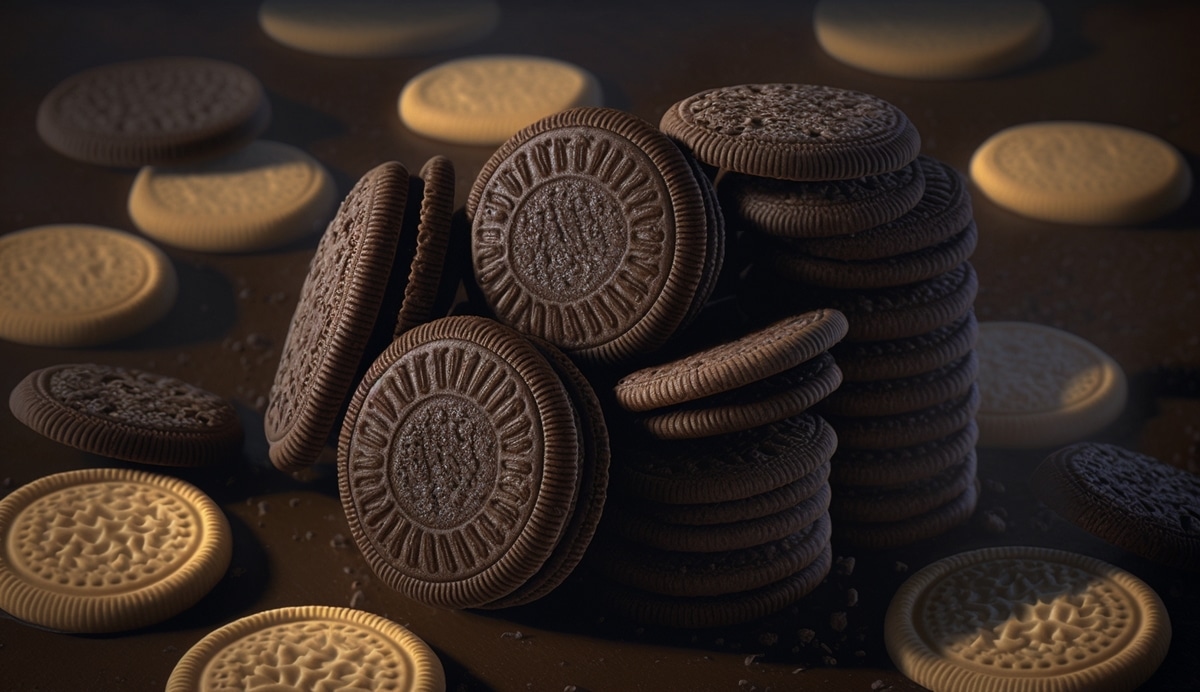To remember:
- Oreo composition Oreo cookies, which contain neither alcohol nor pork gelatin, use ingredients such as wheat flour, palm oil and cocoa, but the nature of the emulsifiers used (vegetable or animal) remains uncertain without halal certification.
- Halal issues Despite their popularity, Oreos are not halal-certified globally, especially in France where the factory does not offer a halal guarantee, leaving ambiguity over the origin of the fatty acid mono- and diglycerides (E471).
- Certifications and vigilance Muslim consumers should check for local halal certifications to ensure that Oreos meet halal criteria, particularly with regard to emulsifiers which may be of animal origin.
Oreo is an American cookie brand, known for its cream-filled chocolate cookie sandwiches. These cookies are very popular all over the world, but the question often asked by the Muslim community is: Are these oreo cookies halal? Is there pork in Oreo cookies?
In this article, we'll help you discover the answers to these questions!

Oreo halal: the composition of Oreo cookies
Despite the fact that Oreo cookies are marketed in Algeria, many observant Muslims are asking the question: "Is the Oreo cookie not halal?". In fact, the Oreo company addressed this controversy on Twitter in March 2019. It replied that its cookies were not intended for Muslim consumers:
"Our Oreos do not qualify for a halal diet."
This unclear answer provoked numerous reactions from their Muslim consumers, and finally forced the company to clarify its position:
"Some stores may sell products with local halal certification."
So, different countries may have different Halal standards in place and different raw materials used to manufacture their product, including cookie, cookie, etc. And according to the brand's official website, the ingredients in Oreo cookies are as follows:
- Wheat flour ;
- Sugar ;
- Palm oil ;
- Lean cocoa powder ;
- Glucose-fructose syrup ;
- Leavening powders ;
- Salt ;
- Emulsifiers ;
- Vanillin flavor.
This means that no alcohol, pork gelatin or other ingredients of animal origin among the ingredients mentioned in the list, which could lead one to believe that Oreo cookies are halal. However, you need to be careful about the additives present in the composition, especially emulsifiers.
Emulsifiers in Oreo cookies
Emulsifiers are substances used to blend ingredients that do not mix naturally, such as water and oil. They are often used in food products to improve taste, stability and shape.
The emulsifiers used in Oreo cookies are:
- Soy lecithin (E322)
- Mono- and diglycerides of fatty acids (E471)
Soy lecithin is a plant-based emulsifier, which poses no problem for Muslim consumers. On the other hand, mono- and diglycerides of fatty acids may be of concern to Muslim consumers.animal or plant originIt's impossible to know without halal certification.
In fact, these emulsifiers can be made from animal fats, such as pork or beef, or vegetable fats, such as palm or rapeseed oil.
But the Oreos are vegan so that means it's about vegetable fat is used.
Are Oreo cookies halal in France?
Oreo cookies do not contain pork directly in their composition, but they do contain pork. contain emulsifiers which may be of animal or vegetable origin. It is therefore not possible to claim that Oreo cookies are halal without official certification.
You must know that only the factory in France is not Halal-certified for practical reasons. If you are Muslim and wish to consume Oreo cookies, you can check whether there is a certified halal version in your country, or ask the manufacturer about the origin of the emulsifiers used.
How do you recognize a halal oreo product?
As a reminder, a product is said to be halal if it complies with the principles of Islamic law. The products in question must not contain :
- Ingredients prohibited by sharia lawincluding alcohol, blood and pork.
- And must be prepared according to practices in line with Islamic teachings.
Some foods are considered haramIn other words, their consumption is forbidden by Muslims. These include pork and all its derivatives (such as pork gelatin), alcohol in all forms, and products containing blood.
Therefore, Muslims who attach importance to compliance with Halal regulations should always stay alert and find out all you need to know on the products they buy. The best solution is to refer to the certification marks recognized in your country or region.
Discover also among our articles is make-up haram?






